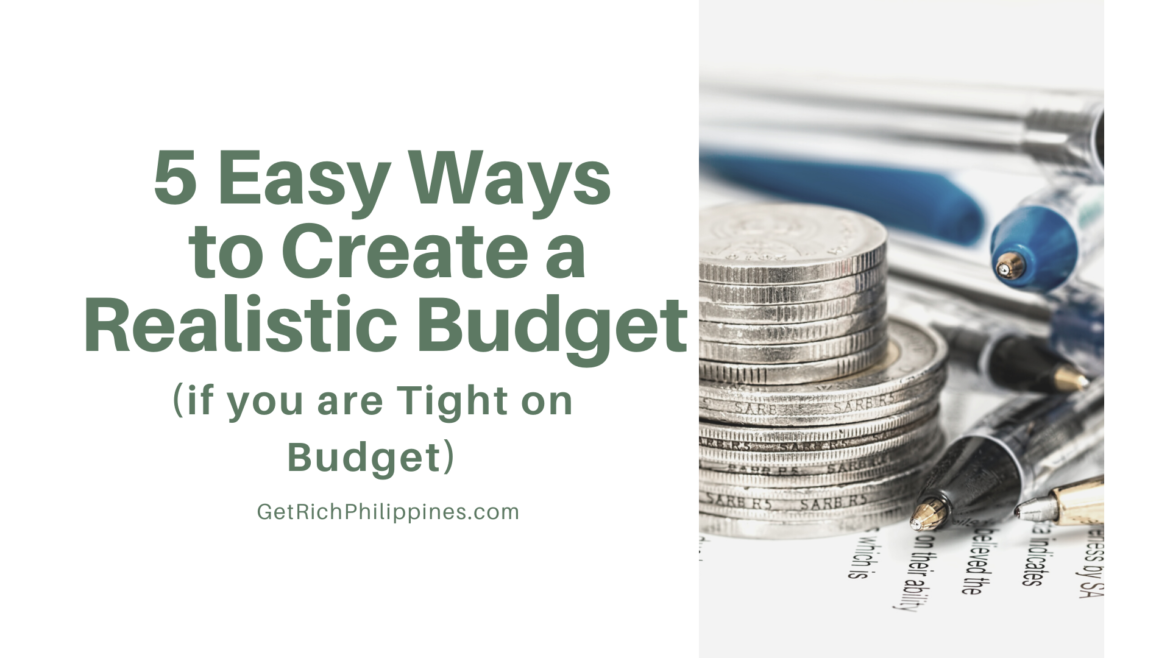
It is just timely, that as the year starts, we put our financial plan in place. If you are trying to pay off debt, save for a house pr car down payment or just want to make ends meet without resorting to debt, a concise and realistic budget in place is a great guidepost to achieve your financial goals. Creating a Budget in Paper is easy, but how to create a realistic budget plan what if you are tight on budget?
Follow these easy ways to create a realistic budget.
1. Calculate All Expenses
Your first order of business is finding out exactly how much you’re spending each month. Include regular payments like house rent or amortization payments, phone plans, loan payment, food allowance, tithes, etc. Do not also forget payments that are scheduled quarterly or yearly like insurance premiums. For quarterly or yearly premiums, divide the amount to 3 or 12 respectively so that the amount is divided for each month.
To make an accurate expenses, revisit your bank statements, credit card bills and receipts. Remember every expense where your money goes to every paycheck.
Remember that being thorough when you add up expenses is important in creating a realistic budget. An unaccounted bill can really collapse your whole budget plan and will necessitate you to redoing your budget plan.
2. Calculate All your Income
Once you’ve figured out how much money you need to stay “alive” financially each month, it’s time to determine your actual income. Besides your regular salary, get an accurate picture of your actual income by adding in all source of income throughout the year. If you have a spouse and you have a dual earner household, factor in also the income being received by your partner. Account for all incoming funds such as salary (after deductions), allowances, cash gifts, bonus, 13th month pay, rental income, etc.
3. Set your Financial Goal
After computing for your expenses and your income, if there is something left, then good for you. You can allocate it to your savings goals like the 24-Paycheck Savings Challenge.
But if your expenses is more than your income, then it is time to revisit your expenses and find something that you can eliminate or cut off. Maybe it is time to limit usage of air condition to lessen your electricity bills. If you are using post paid plans and it is not a necessity to your work, then it maybe time to cut off phone plan and switch to prepaid loads.
4. Record Spending and Track your Progress
The best way to stick to your budget is to record all your expenses and income. Create an Excel Sheet to record all your expenses. If you can be more detailed like on the category of expenses (e.g Food, House Rent, Support to Parents, Daily Work Allowance). Having to record all your expenses will cause you to review and evaluate how are you sticking with your budget and how can you improve. It’s satisfying and motivating to record when you see that you are progressing and meeting your goal.
5. Do not be too hard on yourself
Aim to stick to your budget, always! But if you find some breathing space, go and splurge sometimes. But make sure to get back on track to your budget plan always!


